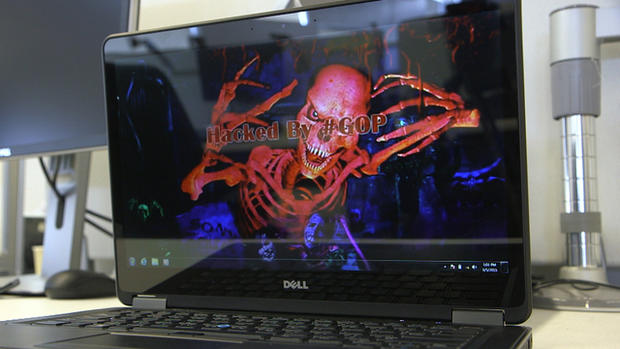Why the Sony hack is important
Fifteen years ago, when Steve Kroft did his first story on cyberwar, the story focused on "what ifs." What if a foreign government attacked U.S. computer systems with a cyberweapon?
"It was fascinating, but it also seemed at the time to me like science fiction, like this is way off in the future. And now here it is, and it's happening," Kroft said.
Kroft's latest report, "The Attack on Sony," is about the destructive cyberattack on Sony Pictures that took place last November when the studio was about to release "The Interview," a movie that lampooned the leader of North Korea.
The cyberattack exposed a new and startling reality: You don't have to be a superpower to inflict major damage on the U.S. and companies on American soil. Rogue states like North Korea and Iran -- and even rogue groups like ISIS -- have the ability to launch cyberattacks and create significant disruption. Like terrorism, these types of attacks are considered asymmetrical warfare, meaning "it's very easy for a small group of people to do and very hard for a large country to defend against," Kroft said.
"It was fascinating, but it also seemed at the time to me like science fiction, like this is way off in the future. And now here it is, and it's happening."
Is the U.S. more vulnerable to cyberattack than other countries and how did North Korea infiltrate Sony's computer system? Hear from Kroft -- and the hacking specialists he interviewed -- on a new age of warfare in this week's 60 Minutes Overtime segment, produced by Sean Kelly and Ann Silvio.
Editor's Note: This segment was originally published on April 12, 2015.
